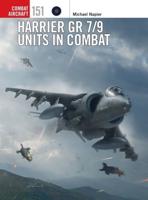Publisher's Synopsis
Transforming an Army at War examines the origins of the modular concept, the reasons for undertaking it, and the process for developing modular unit designs. The Army had been exploring the notion of modularity since shortly after the end of the Cold War. Modularity, at its most basic, was the idea for creating a pool of standardized, self-contained units - combat, support, and headquarters - that could plug into (and unplug from) unit formations as needed with minimal augmentation or reorganization. A modular force would greatly improve the Army's ability to configure packages of units tailored for specific missions by the regional combatant commands. This would be the most far-reaching transformation of the operational forces since World War II and the most radical since the Pentomic reorganization of the late 1950s. This account of designing the modular force highlights a critical part of the Army's program to prepare itself for an increasingly turbulent world and illustrates the intellectual and organizational resources the service can call on in that effort.








